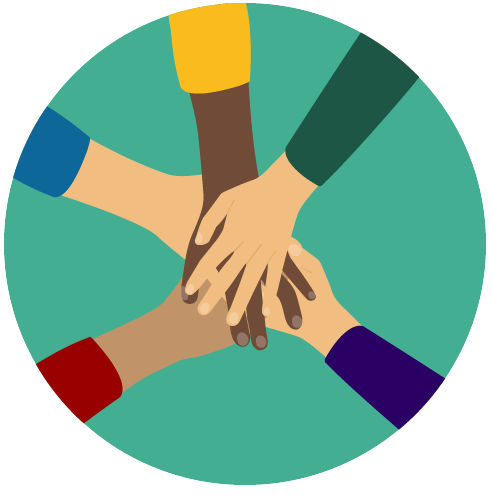A lot has been made of the negative and positive impacts of social media platforms such as Facebook, but the extended reach that the platform gives to its users is typically chief amongst the list of potential positive impacts, but is this actually a tangible positive impact? In the Afterward section of his novel Bowling Alone: The Collapse and Revival of American Community, Robert D. Putnam discusses the fact that correlation and causation are not necessarily the same thing in regard to social media:
First, the vast majority of studies look at the correlation between virtual and in-person connections, but correlation does not prove causation. For example, if intense Facebook users are exceptional real-world civic activists, which is causing which? Do civic activists join Facebook as one aspect of their activism, or did Facebook itself cause them to be activists? If political use of the internet is correlated with offline political interest, is that correlation causal or spurious? (page 423)
– Robert D. Putnam
What Putnam is highlighting with his questions on causation and correlation, is that for the most part groups/communities formed on social media platforms such as Facebook, are groups that already existed prior to their use of the platform and the platform is simply a tool for the cause. Putnam wrote the Afterward section of his groundbreaking novel Bowling Alone in 2020, but are his sentiments on social media platforms simply reinforcing already existing communities accurate, or do they in fact create communities from scratch?

Communication Leads to Community
Before we can examine whether or not Putnam is correct in his assertion, we must first think about what a community actually is. Community is one of those terms that frequently gets thrown around and used in conversation but like with many other words during the past decade the definition should adapt and evolve a bit with the evolution of the internet and society as a whole. Unfortunately, when one looks at the Merriam-Webster definition of community, not a single one mentions the internet, and the top two are: “the people with common interests living in a particular areabroadly: the area itself” and “a group of people with a common characteristic or interest living together within a larger society.” These definitions while not technically wrong, do only look at a couple aspects of community, these being the locality and what the people have in common. However, if having things in common/similar interests is the most important aspect of a community, why should you have to live in the same town/city? To me by far the most important aspect of community is communication, as I’ve lived in many places and gone to many schools that did not feel like a community despite the close proximity that everyone was to each other. Fabian Pfortmullerdiscusses the term “community” being out of date in his article: “What does “community” even mean? A definition attempt & conversation starter.”
I get the sense that the term “community” is really hot in the advertising/marketing/sales/startup/event space, because it alludes to more than just a transactional customer-company relationship. But most of the “communities” I come across, are in my opinion not actual communities. I hear the word being used, when really the authors mean a series of monthly events, a Facebook page, a group of customers that has loyalty towards a specific brand, a yearly conference, all customers of an e-commerce brand, social media followers, everyone who uses Twitter, people who happen to vote the same way, etc.
– Fabian Pfortmuller
I completely agree with Pfortmuller’s sentiments on community, as all of the versions of community he listed outside of the customer rooted ones are created on the basis of communication, and as we know communication is possible on social media platforms, meaning that it is at least theoretically possible that a social media platform could build a community from “scratch.”
The argument for Correlation
While the definition of community is in need of a forward-thinking update, Putnam’s sentiments are not necessarily, as they do make sense. Think about it, how many people follow you on social media that you don’t know or have never lived-in close proximity to/have never gone to the same school as you or worked at the same place as you? The odds are there probably aren’t many of these cases for the average person and if there is than it may very well just be a friend of a friend. This is important because while in theory social media platforms offer the potential to reach a wider network of people, is this actually true for the average person if people they already know are the only people seeing their content? This is where Facebook groups come into play, as these are groups who come together around one particular issue or common interest. However, as Putnam stated in the prior quote, many of these groups were already in existence prior to the Facebook group’s existence, meaning it is merely a tool to increase the amount of like-minded people that can communicate with each other on the topic. Gold’s Gym is a good example of this, as the gym and each community of people who frequently attend each gym existed before the Facebook group for the gym did. However, the Facebook group gives certain additional affordances to these communities such as the ability to interact with people who attend different Gold’s Gyms expanding their reach and even arguably creating one big community out of many small ones. While Gold’s Gym would certainly be an example of a community given our modernized definition of the term, Facebook certainly did not create the community from scratch, it is simply working as an enhancer, which is why Putnam doubts the amount of social capital that social media can actually help to create.
The Argument for Causation
Reddit. Putnam, while arguing a somewhat reasonable and fully comprehensible argument regarding social media’s inability to create a community from scratch, has had his entire argument disproven by one word: Reddit. Reddit is essentially a social media platform formed around the idea of creating new communities via a thread of memes, commentary, and discussion regarding anything and everything. I fully believe, that while not an in-person community, that Reddit threads are communities because they have the key components of communication and common interests. Also given how obscure these threads can be, there is legitimately no other way these communities would be formed outside of the use of a social media platform. Take the Reddit thread r/PrequelMemes for instance, this is literally a community 1.8 million strong at the time that I’m writing this blog post, simply rooted on the common interest of making fun of the Star Wars Prequels (episodes 1-3). Something like this is just not possible in-person as it requires the affordances of the internet and the social media platform specifically to exist, perhaps if Putnam was thinking of community in a more modern context he would have come to this conclusion.

Epilogue
While the Afterward section of Bowling Alone was written in 2020, approximately two decades after the rest of the novel, I believe that Putnam’s ideas regarding community are still stuck in the early 2000s. With the rapid growth of technology and the rapid advancement of our society, it is unrealistic to expect that the definitions of terms won’t also have to be updated from time to time to better represent what that term now means to the new society using it. I firmly think that this is the fundamental flaw to Putnam’s stance on social media platforms being simply correlated to community growth. While there are certainly many times, perhaps even a majority of times, where social media is simply an enhancer to an already existing community, platforms such as reddit have undoubtedly created communities from scratch. Long live prequel memes.